The Pet Obesity Epidemic & The ‘Fat Pet Gap’
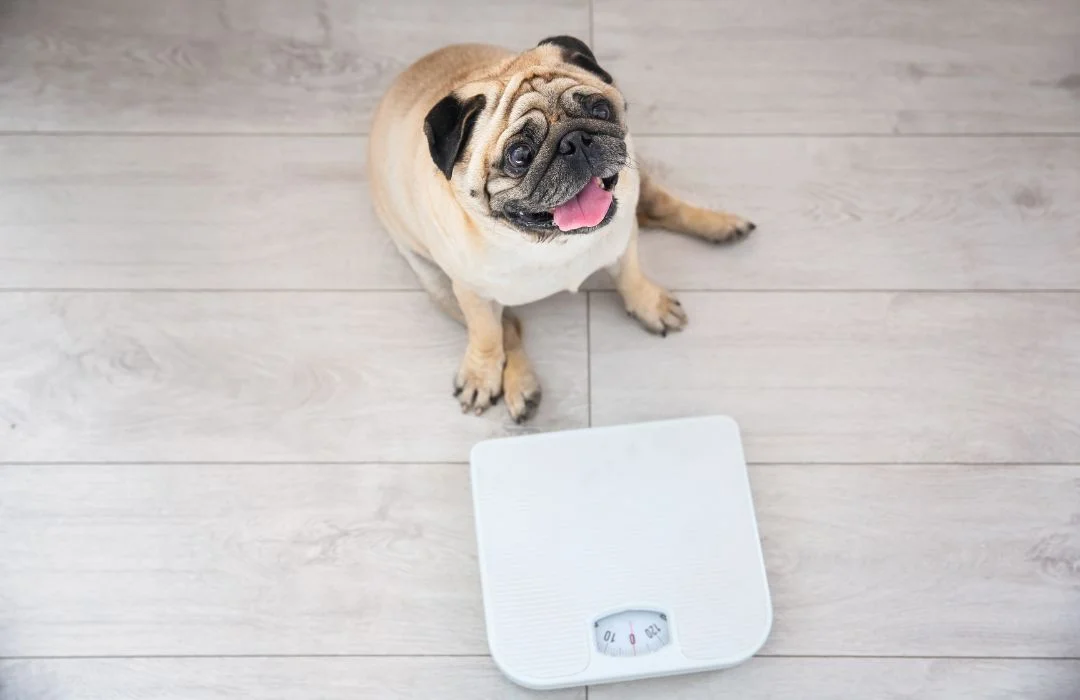
It’s official: we’re not the only ones with a weight problem.
You’ve probably heard about the human obesity epidemic.
But what about the pet obesity epidemic?
Becoming a pet parent has been a hugely growing trend in recent years. And as proud dog mums ourselves, it’s been heartening to see society’s attitude towards pets slowly change for the better.
However, it seems an unintended side effect to this trend is emerging: as pet ownership rates increase, so too do pet’s waistlines.
And with human obesity being an ever-growing problem, was it always inevitable we’d pass this epidemic on to our much-loved pups?
Let’s take a look at the common causes of pet obesity, the signs your pet may be obese, and vet-recommended tips to help your dog lose weight and maintain a healthy lifestyle.
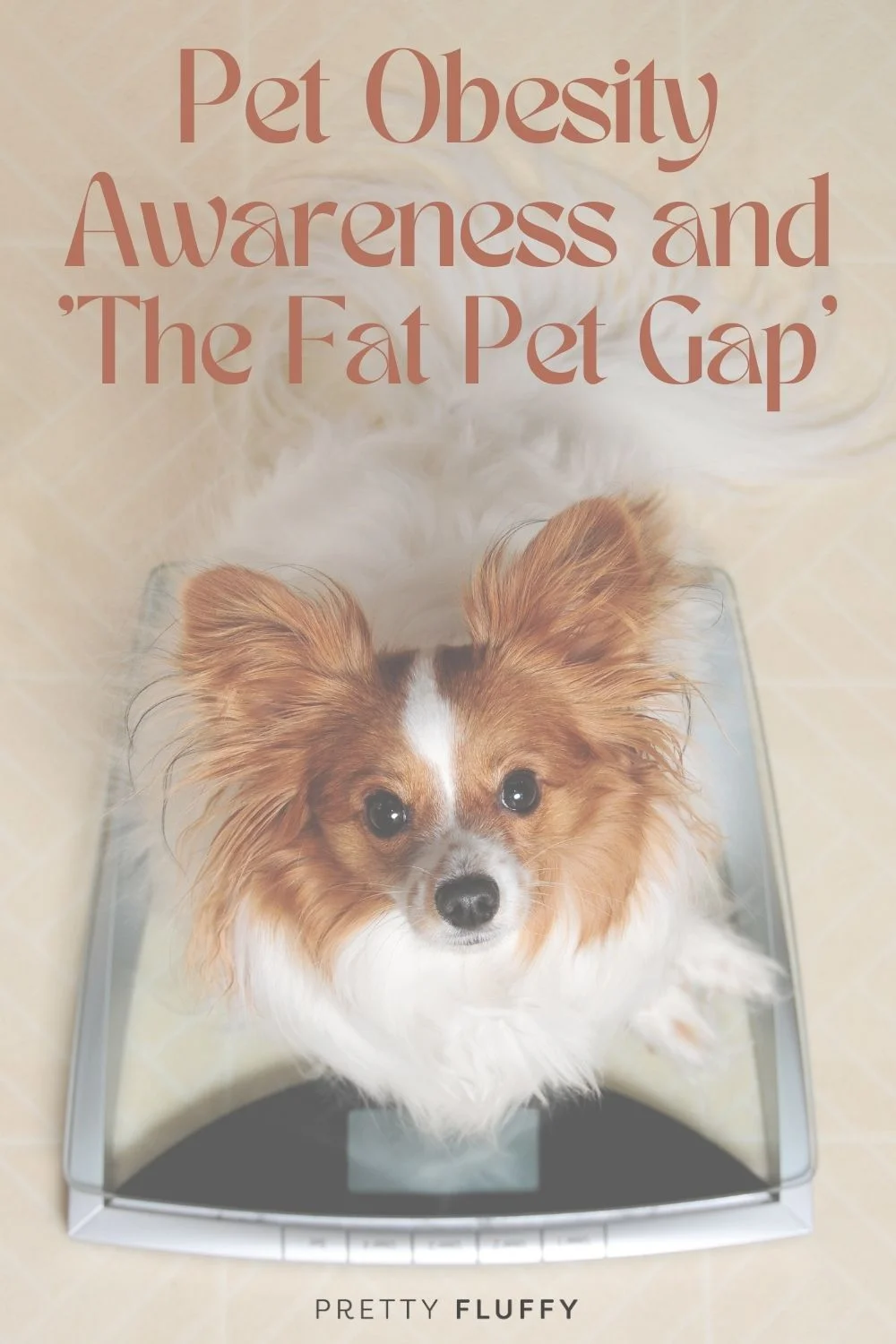
The rise of ‘globesity’ in people & pets
The World Health Organisation has released some eyebrow-raising data on global obesity rates.
According to the WHO, obesity has more than doubled since 1980 – with 43% of adults currently overweight, and 16% living with obesity.
The Center for Disease Control and Prevention (CDC) also found in a 2022 study that at least one in five people in America is obese.
What’s more alarming about these figures is how closely they mirror global trends in pet health:
- In the U.S, this study shows 59% of pets suffer from an obesity problem
- In Australia, 41% of dogs and 32% of cats are overweight or obese
- In the U.K, around half of pets are overweight (equating to around 5 million dogs and 4.7 million cats)
- 1 in 3 pet parents do not recognise their pet’s weight problems
- Obesity is one of the top health threats our pets face, yet is preventable with proactive management
These statistics reveal a worrying trend in attitudes towards pet obesity, as well as a lack of education among some pet owners.
The problem of the ‘fat pet gap’
Being ‘blinded by love’ when it comes to our pets is something many of us are probably a little guilty of.
But when it’s taken too far, this blindness can result in neglect – particularly by those with little understanding of weight-related issues in dogs.
This mindset has been coined as the ‘fat pet gap’ by Dr. Ernie Ward, founder of the Association for Pet Obesity Prevention (APOP).
Dr. Ward has seen many pet parents claim their pet looks healthy, when in fact the opposite is true – they are overweight, or even obese.
Ultimately this points to a mismatch among many pet parents between what is thought their dog should look like, to what their optimal weight ought to be.
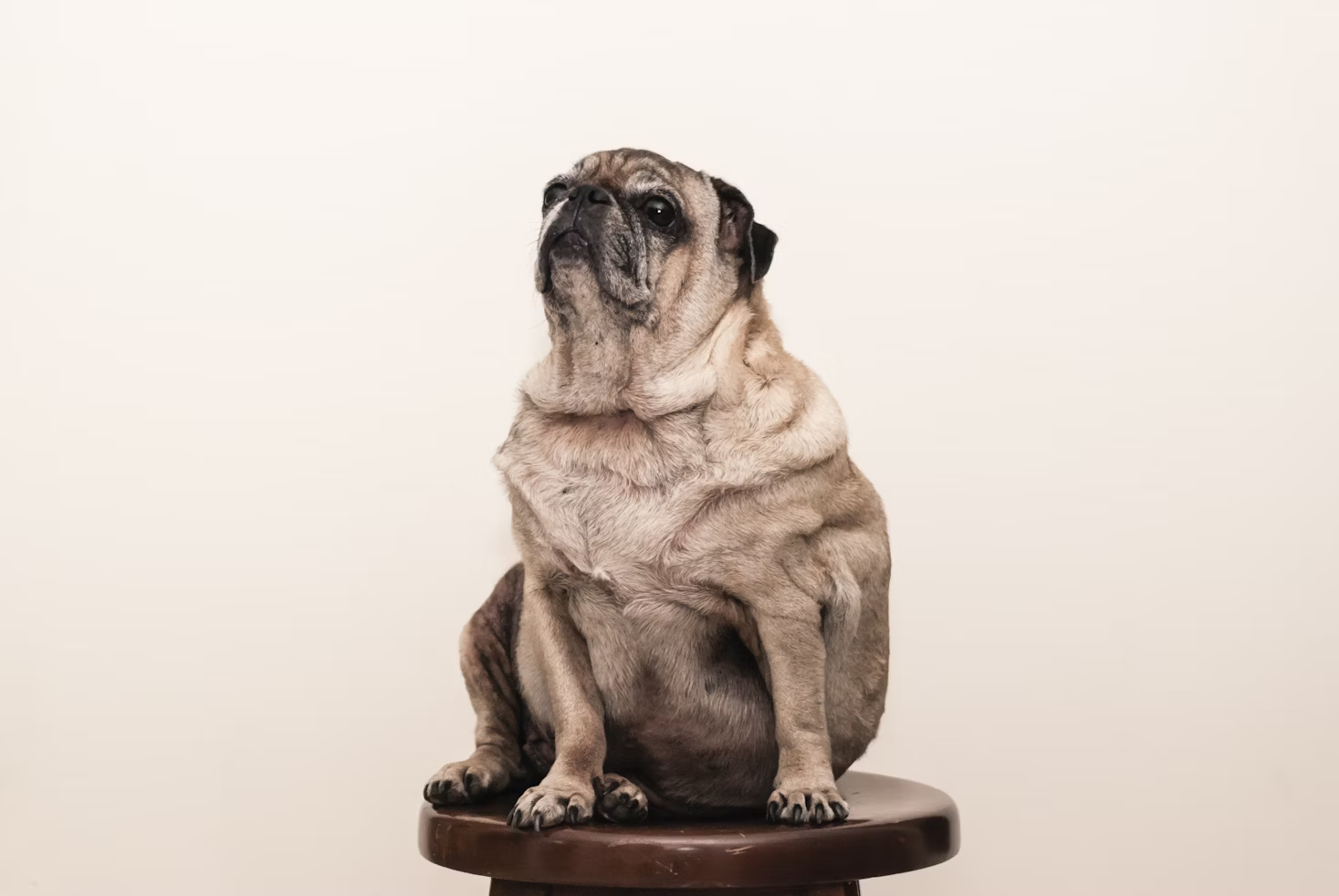
Common causes of pet obesity
According to the RSPCA, the likelihood of a dog becoming obese depends on certain risk factors and causes such as:
- Breed
- Age (dogs over 10 are most vulnerable to weight gain)
- Whether they have been neutered
- Sex (obesity is more common in females)
- Eating too much
- Not exercising enough
- An obese pet parent
The RSPCA study shows that if a pet parent is obese, this increases the likelihood of their pet being exercised less, and reduces their ability to recognise obesity.
Over on Reddit there are some interesting discussions about pet obesity and the role responsible pet ownership plays – see r/dogs and r/unitedkingdom (just beware these threads are a little lively!)
Health problems caused by pet obesity
Pet obesity can cause serious health problems, which is what makes the ‘fat pet gap’ so dangerous.
Dogs living with obesity are at higher risk of developing conditions such as:
- Heart disease
- Diabetes
- Cancer
- Breathing problems
- High blood pressure
- Mobility issues
According to the American Kennel Club, obesity is generally defined as being 30% above your optimal weight – however there is no universally accepted percentage for pets.
The crucial point here to note is this: even being slightly overweight (say 2-3kgs/ 5 pounds) can have a detrimental impact on a dog’s quality of life.
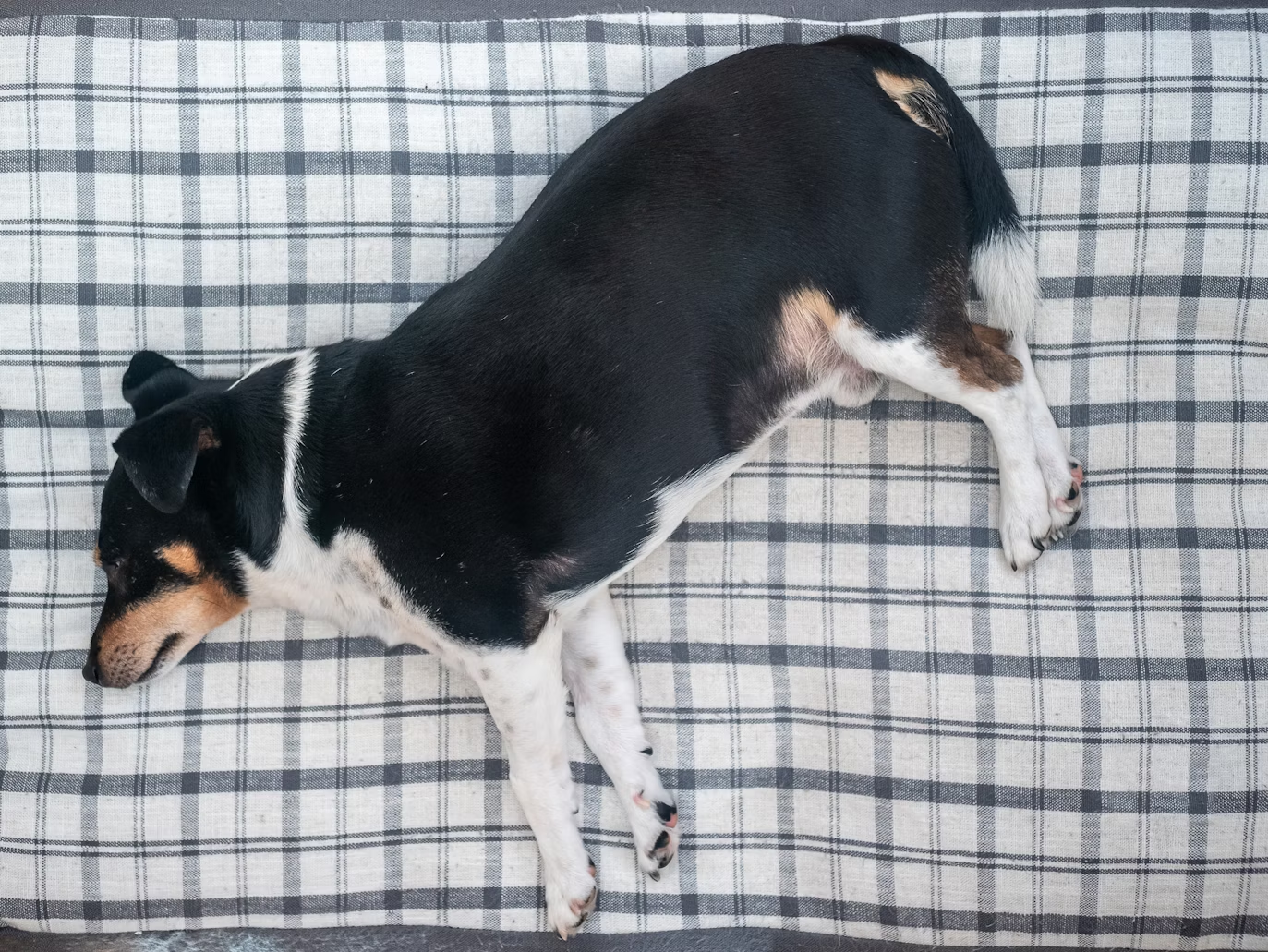
Signs your pet is overweight or obese
You may be thinking, ‘wouldn’t an obese pet naturally look fat…?’
Yes, this may be true with obese pets. But as we’ve just mentioned, even a little extra weight can pose a threat to your pet’s overall health – but isn’t necessarily easy to spot.
It’s why understanding the following signs of pet obesity is so important:
- A lack of mobility such as difficulties jumping, running, climbing stairs, and using the doggy door
- Breathing issues such as constant panting or heavy breathing, even if they haven’t exercised
- Intolerance for exercise and lethargy
- Abdominal sagging
- A larger, rounder-looking face
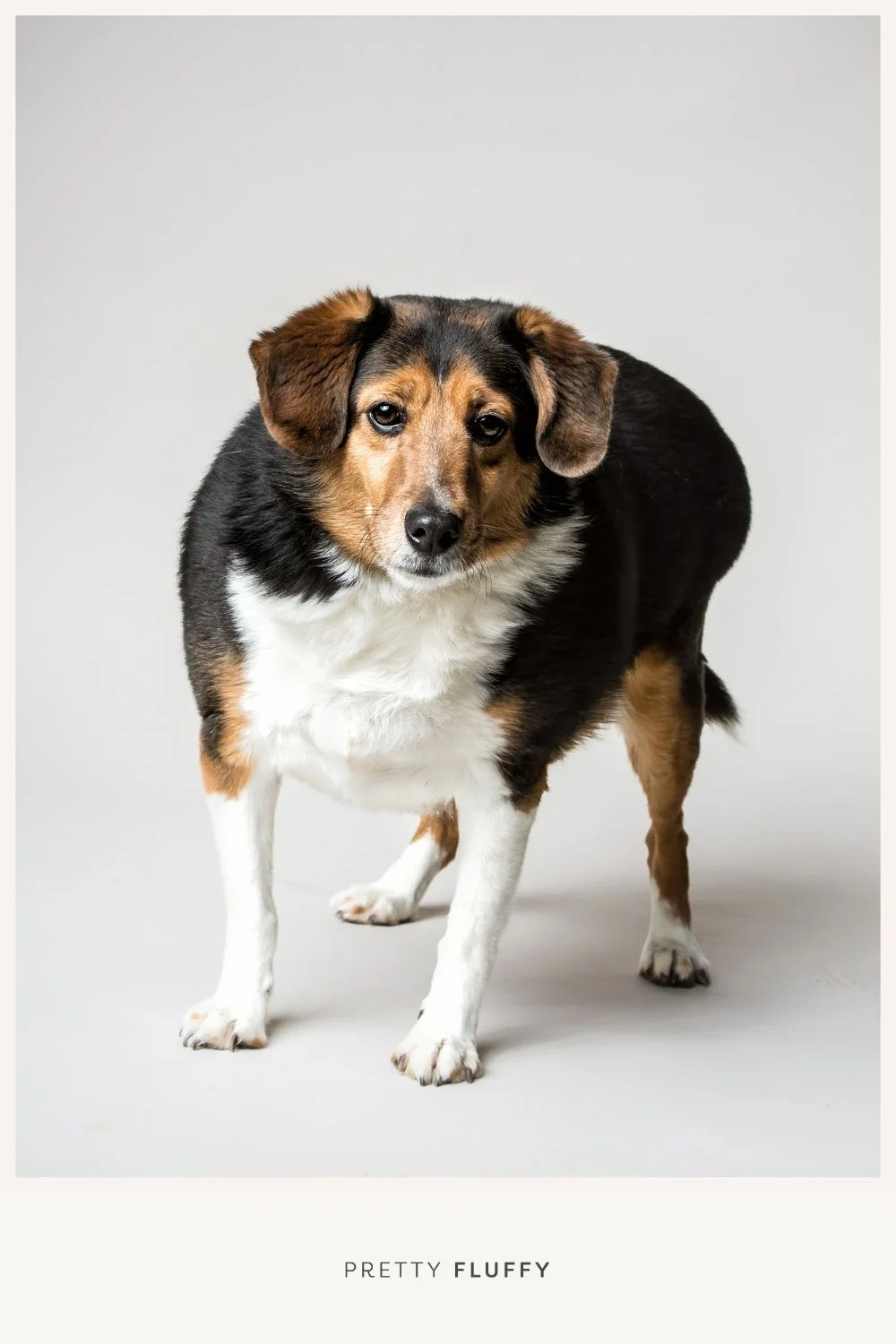
How to help your pet lose weight
Ok, so your best friend is showing signs of obesity. Now what?
Firstly, it’s important not to take matters into your own hands.
While some pet owners believe that losing weight is as simple as fewer calories in, more calories out – nothing could be further from the truth.
VCA Animal Hospitals warns against putting your pet on a strict diet without consulting a veterinarian, who will work with you to form a healthy and strategic weight loss plan.
This way, your dog can lose weight safely without compromising their overall health.
Diet metabolic weight management and exercise will be central to a managed weight loss plan.
Generally, your vet may prescribe Hill’s Metabolic Dog Food – a dry dog food specifically designed to shed excess weight by activating your dog’s unique metabolism.
With 96% of dogs losing weight within two months of regular consumption, it has an impressive success rate.
Once your pup’s nutritional needs are taken care of, good exercise will further facilitate proper weight management.
In general, dogs need 30 minutes to two hours of exercise each day to stay fit and lean.
Depending on your pet’s age, health and unique needs, the timing can be increased slightly and they can be taken for longer walks or play time at the park.
Final thoughts on pet obesity
The first step to preventing pet obesity is by raising awareness of the problem and its serious health impacts.
As caretakers to our much-loved pups, it’s crucial to understand that keeping them at a healthy weight is not just about aesthetics—it’s about ensuring their overall well-being and quality of life.
After all, pets bring so much joy to our lives, and it’s our responsibility to keep them healthy.
Regular veterinary check-ups and mindful dietary choices can go a long way in preventing the detrimental effects of pet obesity, creating a happier and healthier life for our furry family members.
Need to speak to a vet now?
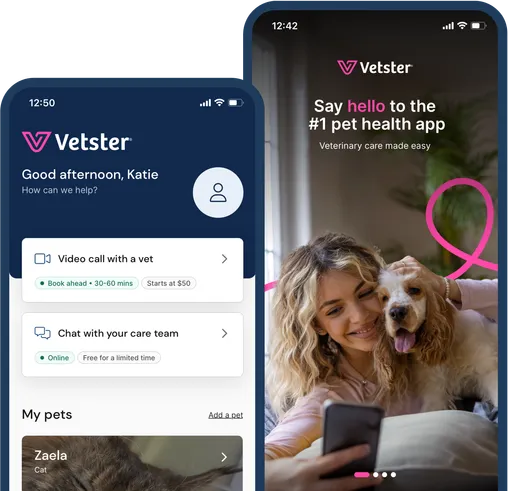
Talk to a licensed veterinarian in minutes with Vetster, the top-ranked pet health app available 24/7.
Get professional guidance and receive a care and treatment plan, right from the comfort of your home.
It’s quick, convenient, and trusted by pet parents everywhere.
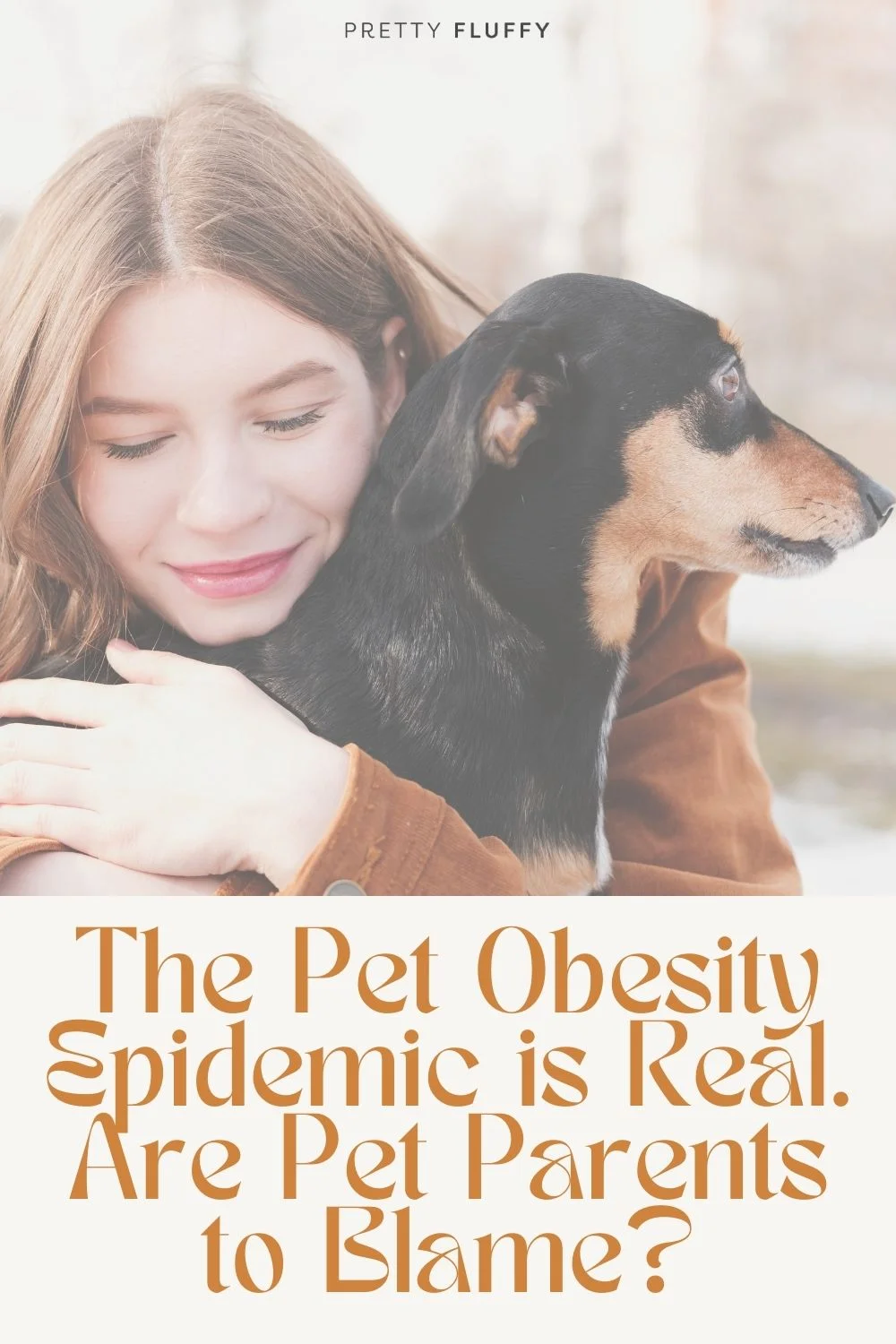

Pretty Fluffy is the ultimate lifestyle destination for dog lovers. Discover the best designer dog brands and emerging small pet businesses, the latest dog accessories, healthy dog treat recipes, dog training tips and more. Thank you for being part of our dog-loving community!









